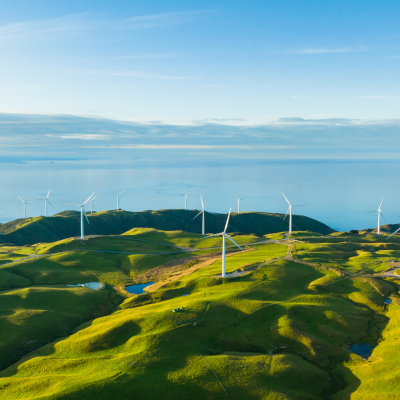The global population is witnessing unpredictable events, such as climate changes, pandemics, geo-political conflicts (Russia-Ukraine) and political instabilities etc., these events have changed and impacted our lives in a way that we need to think differently. These events have made countries more concerned about energy security and how they could become more self-sufficient in terms of energy. With this backdrop, the G20 countries have taken the initiative on energy security, agreeing on the Energy Collaboration Principles decided in 2021 by G20 energy ministers in Naples, Italy (known as the Naples Principles) to improve energy security during the energy transition. A series of recommendations to allow G20 countries to achieve secure clean energy transitions through important near-term actions which are aligned with long-term goals. Importantly, G20 countries have pledged net zero emissions by or around mid-century.
Net zero emissions could be achieved by accelerating the adoption of clean energy technologies; this would increase energy security by reducing reliance on fossil fuel imports and consumption. To maintain energy security, the supply of energy needs to be greater than the demand. However, this could be ensured only by establishing proper energy infrastructure and cost-effective supply chains for clean energy. New renewable capacity would need to be introduced along with energy efficiency measures, especially in the industrial sector.

Attracting investments in clean energy technologies and developing infrastructure for import and export would strengthen the supply chain. Increasing biofuels and completely replacing fossil fuels with bioenergy would make countries self-sufficient in terms of energy. Furthermore, the commercialization of new technologies that are low carbon or green in nature could increase energy security.
As per the IEA (International Energy Agency), Net-Zero scenario 2050, the energy intensity is expected to come down in almost all sectors but especially in the buildings primarily due to the implementation of energy efficiency measures and change in consumer behavior regarding climate change. Further, the generation of electricity is expected to increase by ~40% between 2020-30, with a focus on the deployment of clean energy.

The power sector’s policies also need to be transparent. Responsibilities and incentives of the departments concerned should be allocated properly, and collaboration across time zones ensured. An integrated and risk-based approach is needed, so the team can understand the factors impacting the sector, assess risk and formulate a plan to deal with uncertainty.
Most importantly, emerging economies should focus on scaling up their policies, technologies, and business models. Strategies should be adopted to prevent the use of non-energy-efficient equipment, appliances, and vehicles. Energy-efficiency policies and programs should be implemented properly at all levels. Deploying different financing mechanisms and introducing innovative business models could increase demand for efficient products and services. International collaboration would, therefore, play a major role in executing energy-efficiency policies.
The G20 countries would become energy-secure only if they assess the ability to transition existing infrastructure that uses coal, oil, and gas to using low-carbon fuels such as hydrogen. This includes seeing how gas pipelines can be used to transport low-carbon gases. Excess refining facilities could be converted into biofuel-producing facilities, and retailers could be supported in their sale of low-carbon fuels and in integrating charging infrastructure. Thus, integrating renewable energy and clean energy fuels could transform oil and gas infrastructure using decarbonization, increasing energy security.
The G20 countries should also focus on ensuring the secure supply of critical minerals. They should create an environment that encourages more investment in critical mineral projects that expand their value chains. Adopting a systematic approach in line with ESG standards could also increase the demand for critical minerals. A secure supply of critical minerals could be ensured only if production is more diversified and resilience to climate change, technological advancements and cyber threats are increased.














